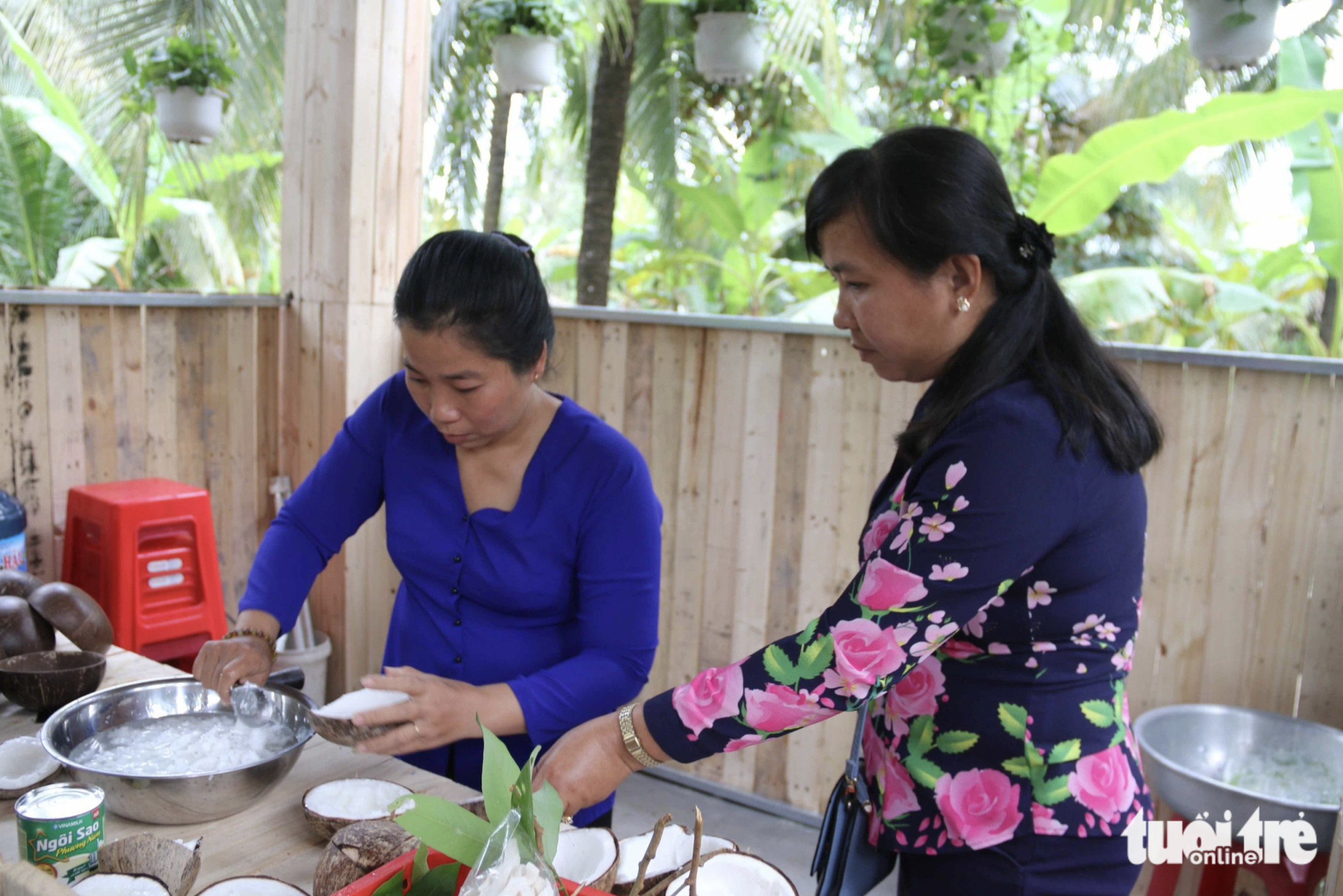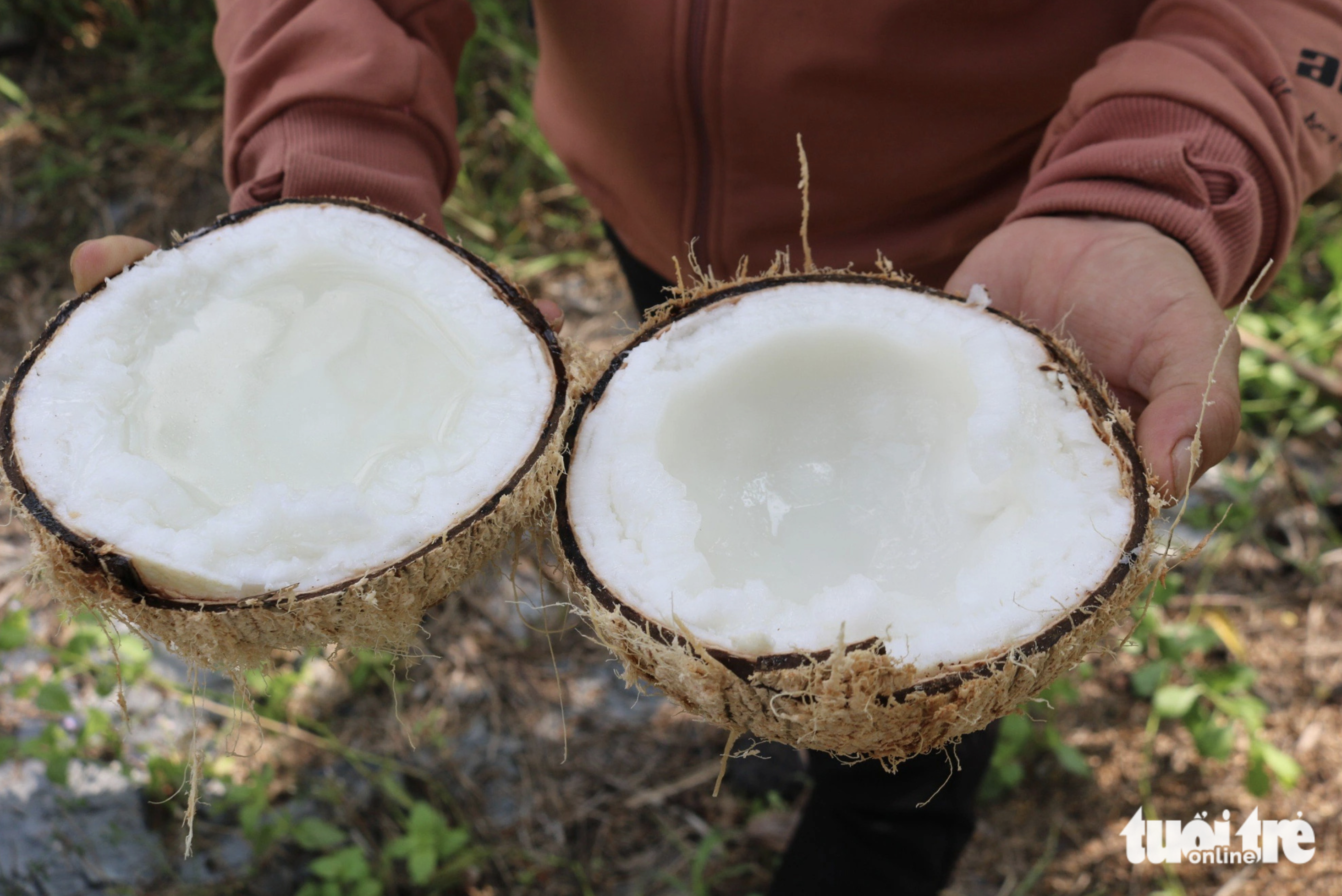Dua sap, literally translating to waxy flesh coconut in Vietnamese, contains no water and is filled with white, greasy, jelly-like flesh when fully ripened.
The festival anticipates the introduction of dua sap-based products to the global market and aims to showcase tourism products to both local and international travelers, as stated by an official from the provincial People’s Committee on Wednesday.
The provincial Department of Culture, Sports and Tourism will collaborate with the People’s Committee of Cau Ke District, which boasts the largest expanse of waxy flesh coconut cultivation among all the province’s districts, to initiate the festival.
With 27,400 hectares dedicated to coconut trees, Tra Vinh stands as the second largest coconut tree-growing locality in the Mekong Delta region, surpassed only by Ben Tre Province.
Annually, the province produces approximately 444 million coconuts.
Waxy flesh coconut trees are cultivated across 752 hectares, primarily located in Cau Ke District.
 |
| A woman prepares a waxy flesh coconut dish for tourists at a coconut garden in Cau Ke District, Tra Vinh Province. Photo: Hoai Thuong / Tuoi Tre |
The festival’s objective is to recognize the value of Tra Vinh dua sap and encourage farmers and businesses to establish coconut brands, thereby unlocking the province’s potential.
The festival will also include various business networking events, seminars, a trade show, and a culinary competition where participants will create 100 dishes featuring waxy flesh coconut as the primary ingredient.
Festival attendees will enjoy a range of sports, cultural activities, and traditional games throughout the captivating event.
 |
| Tra Vinh Province, Southern Vietnam, is renowned for dua sap (waxy flesh coconut). Photo: Hoai Thuong / Tuoi Tre |
In Vietnam, dua sap is commonly used in smoothies or combined with sweetened condensed milk, shaved ice, and peanuts to create a delectable dessert.




